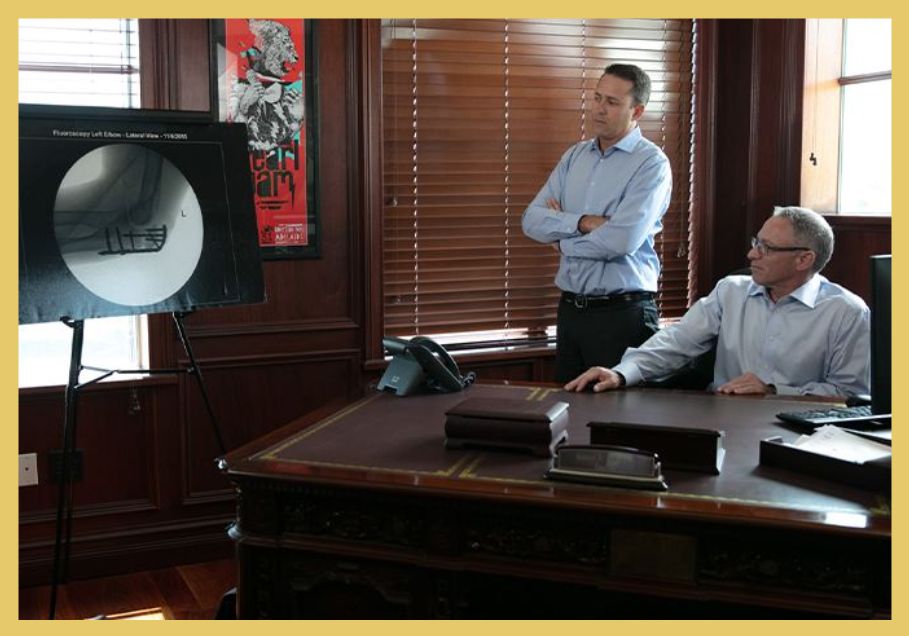
Florida Parasailing Accident Attorneys
Committed to Top-Quality Representation
More than three to five million people each year enjoy the sport of parasailing, and many of them partake in the sport for the first time, according to the Parasailing Safety Council (PSC). Many people think and often assume there is a state or federal agency regulating parasailing, such as someone to inspect the parasailing equipment, license the operators, and enforce a regime of strict safety regulations, or that there would be someone to make sure that they are insured. These assumptions are wrong – parasailing is virtually unregulated by federal or Florida state laws.
Several attempts to pass legislation in the state of Florida have failed. Today, the only requirements for parasailing are the U.S. Coast Guard’s approval of the vessel, a boating license, and the use of life preservers. The equipment directly associated with the recreational sport—the harness, the parasail chutes, any towlines, etc.—are not regulated.
According to the PSC, since 1982, 429 parasailing rides resulted in serious injuries and 72 deaths. Of the deaths, 9 were the result of passenger support equipment failure, 58 were from the inability to escape from the passenger support system, and 5 were unknown.
At Zimmerman & Frachtman, P.A., our skilled parasailing accident lawyers in Florida have everything you need to pursue a claim for yourself or a loved one. Call (954) 504-6577 today to schedule a free initial consultation.
The Dangers of Parasailing
Documented incidents have reported victims being dragged through palm trees, being slammed into buildings, being dropped hundreds of feet only to be being dragged under the water and resulting in drowning. Others reported sprained ankles, broken legs, amputation, punctured lungs, fractured pelvis, brain injuries, and death. Even as the number of operators worldwide has declined over the past decade due to high insurance and equipment costs, the number of injuries has increased by about 15%, says Mark McCulloh of the Florida-based Parasail Safety Council.
Parasailing is often described as sport where a passenger (single rider or tandem riders) are dangled up to 350 feet in the air using a parachute and winch system and harness, which is attached to and towed by a speedboat below. The driver of the boat determines where you go and where you land. The ride normally lasts 10-15 minutes.
According to PSC, the single root cause of the majority of parasail fatalities begin as a tow line separation from the tow vessel in high winds, resulting in a water landing. A parasailing canopy separated from its tow line can remain inflated by the wind with a passenger being towed in the water placing them in harm’s way. In addition to gusty winds, weather conditions, equipment failure (tow ropes, harness), high speed water and deck landings, canopy rotation, line popping, whiplash, and careless or untrained operators and/or boat captains can also cause serious injuries and deaths.
How Common Are Parasailing Accidents?
Not everyone who gets the licensing and paperwork completed to run a watersports business has an eye on safety. While many individuals in the tourism industry are very aware of the possibilities of injury, there are some who—either through greed or through ignorance or even the pressure of demand—don’t take the precautions that they should.
Some numbers of accidents in any activity are to be expected, of course; there are factors and variables that no one can predict or take into consideration, and pure accidents are not always directly someone’s fault. However, there are some precautions that those interested in participating in the pastime should be aware of.
While a claim for parasailing accident injuries can result in compensation for the negligence of the operator, it’s vital to do everything you can to avoid the lingering pain—and possibly even death—that a fatal accident leaves behind. Delray Beach parasailing injury lawyers are well aware that there are some very big red flags to look out for, and if you make sure to check for these possibilities, you will be much safer.
When you engage in parasailing, you are putting your trust in the experience of those operating the equipment and in the reliability of the equipment itself.
According to the Parasail Safety Council, some of the most common parasailing accidents occur because of:
- Tow Line Separation – This is when the tow line physically breaks or separates from the boat at one of the connection points. As a result, the riders float adrift and can actually end up crashing on the shore.
- Equipment Failures – If the rider is not properly secured, the harness equipment can experience a failure and cause severe accidents for the rider.
- High-Speed Landings – Emergency landings at high speeds can occur if there are strong winds or faulty equipment. This can cause injuries or even death to the riders as they are brought back onto the boat.
- Canopy Rotations – The potential for a line failure, ensnaring, or a forced water landing can occur if the parachute (canopy) fails or becomes damaged. This is because the canopy will start to twist in the sky.
- Line Popping – If the winds are constantly changing in speed or if the boat’s speed is consistently changing, this can produce slack in the tow line. As a result, a sudden pull will make the line taut abruptly. When this happens, the line can pop and suddenly jolt the riders.
- Whiplash – When the tow line pops, a rider can experience severe whiplash due to the forces of the jolt.
One of the potential red flags to look out for is a company that hasn’t been in business for long; while there are new companies coming up every day in tourism industries in Florida, if you have the option of working with a company that has been in business for a longer period of time—and thus has a good reputation—then you should definitely opt for that company over one who hasn’t necessarily had the chance to establish itself; after all, if they have no reputation at all, you have no way of really knowing what standards they adhere to.
In addition, the parasailing company you do business with should be licensed by both the state and the city or county; they should not have any qualms about providing you with verification of their licensing. The Parasail Safety Council also recommends that you ensure that the captain of the boat is a US Coast Guard Licensed Captain.
Some of the common things that can possibly go wrong during parasailing include:
- Malfunctioning boat, towline, harness, or sail
- Dangerous conditions
- Improperly trained staff—which leads to dangerous proximity to other vessels beaches and structures as well as other precautions not being taken into account, and the results of improperly briefing passengers as to the dangers and how to react to them
Make sure that if you have booked a parasailing adventure for yourself, you check the weather both the morning of your appointment and closer to the time that you are supposed to go out; dangerous weather conditions can erupt quickly, and you shouldn’t go up if conditions are unsafe.
Statistics for Parasailing Accidents
Below are some statistics on parasailing accidents that you should be aware of prior to engaging in this type of water activity:
- More than 1,800 people have suffered injuries between 1982 and 2012,
- Studies have shown that there is a lower number of injuries with gondola-style parasail rigs compared to harness parasail rigs.
- In fact, 520 serious injuries required hospitalization when harness parasail rigs were used compared to only two with gondola-style parasail rigs.
- It has been shown that at least 95 percent of all parasail-related deaths were because the riders were unable to escape or evacuate from a harness after an unexpected water landing occurred due to strong winds.
At this time, there are no federal regulations that oversee that parasailing industry, equipment inspections, and equipment replacements.
If you or a loved one has suffered serious injuries or death from parasailing (or any other water sport) or in a personal watercraft in Florida, throughout the U.S., or while on a cruise and would like to learn more about your legal rights, we can help.
Please contact Zimmerman & Frachtman, P.A. online or call (954) 504-6577 today. Our Florida parasailing accident lawyers offer free consultations and charge you only if we win your case.

Serving the entire state of Florida. We will take charge of your case and get you the compensation you justly deserve.
Our Distinguished Team
When Your Benefits Matter, It Matters Who You Hire
-
Aggressive, Experienced, and Compassionate Counsel
-
Client Centered Approach
-
Spanish-Speaking Services
-
Access to Call or Text Your Attorney Anytime
-
Work Directly With Your Attorney
Whether you have questions or you’re ready to get started, our legal team is ready to help. Complete our form below or call us at (954) 504-6577.





